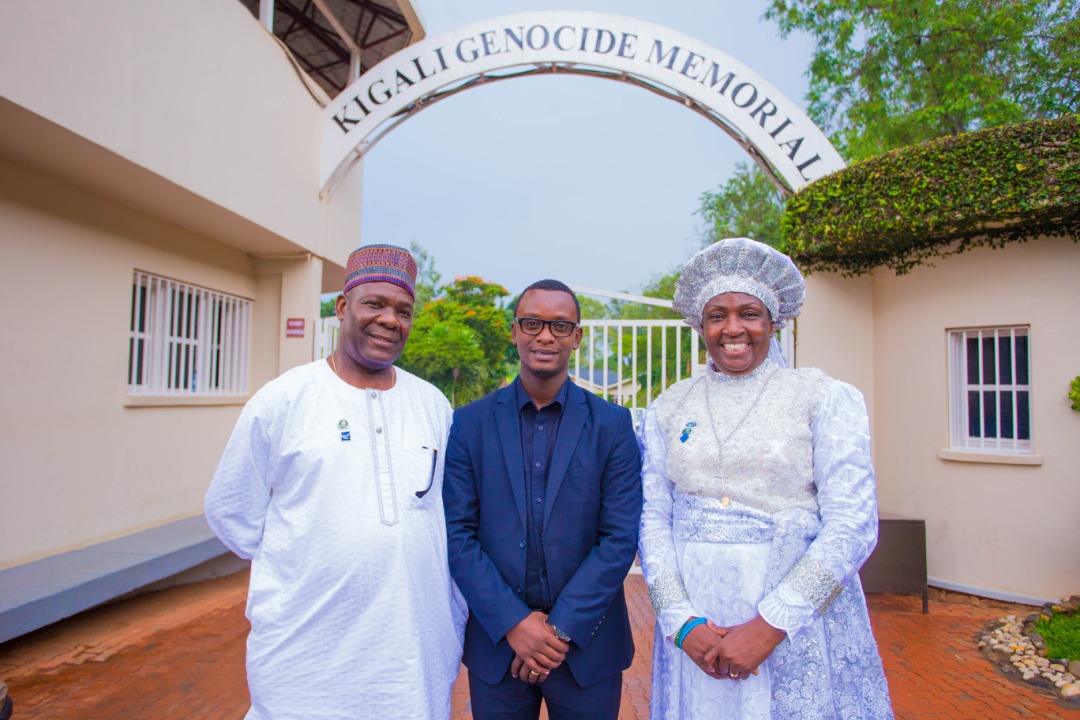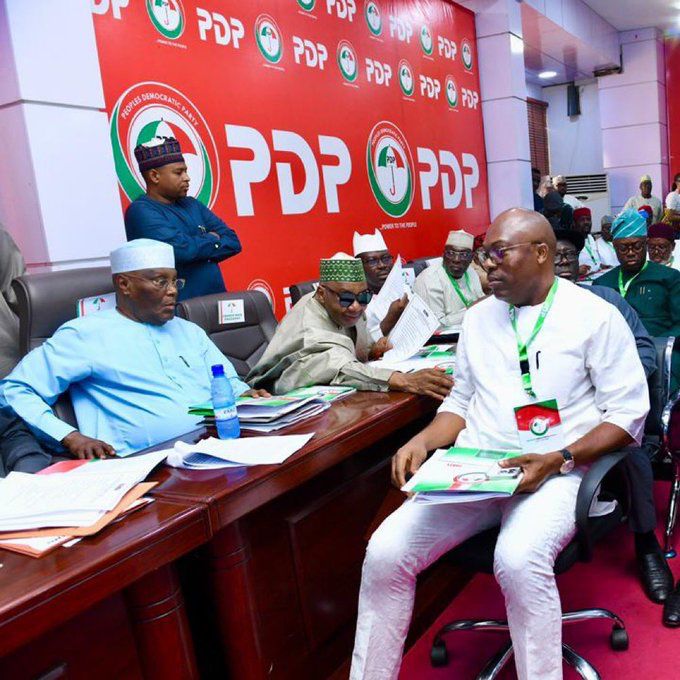By Femi E. Gabriel
The excellent woman of giving and Founder, Esther Ajayi Foundation, Reverend Mother Esther Ajayi, has taken her philanthropic gestures a notch further by visiting the widows and orphans of the Rwandan genocide in the beautiful city of Kigali.
The over 180 widows and orphans, who are members of Solace Ministry, in the Rusoro District area of Kigali, Rwanda, received cash gifts from Rev. Mother Ajayi, whose visit was boosted by the company of her husband, Rev. Dr. Ademuyiwa Ajayi, her sons; Adewunmi and Michael among others.

Rev. Mother Ajayi was in Rwanda on the invitation of her financial adviser, Dr. Aderemi Banjoko, to ascertain the level of efforts, rendered by Solace Ministry, with a view to commit her support.
Solace Ministries is a non-denominational Christian organisation dedicated to comforting widows and orphans in response to the overwhelming needs of traumatized survivors of the 1994 genocide, especially HIV/AIDS victims.
Founded by Jean Gakwandi, Solace Ministries, apart from helping survivors to heal their wounds, is also committed to reconciling them to Christ, and providing hospital, where thousands receive treatment.

Reverend Mother Esther Ajayi laying a wreath in honour of Rwanda genocide victims
Overwhelmed by joy and surprise, Gakwandi, who also has a very terrible experience, losing his siblings, parents and grandparents to the 1994 genocide but survived by the grace of God said, “Today is a special day for us. Though we are small, we have a very big God. I heard of what Rev. Ajayi is doing around the world, but I thought we are not in the category of people she could have time to visit, but she is led by Holy Spirit to visit us today”.
In her message of hope, Rev. Mother Esther Ajayi charged the congregation to be full of trust in God who is able to wipe off their tears.

Her inspiring ministration spurred faith in God among the people.
“Devil will always want to remind you of yesterday to get you stuck in pains, but forget yesterday and thank God for today and be assured of greater things God will do for you tomorrow. Jesus is the great healer, believe in Him and whatever that has happened to you will end in praise. If God can change my story, He will surely visit you and give you reasons to smile. Do not despair, Jesus is alive,” she said.
The Reverend Mother also revealed that God told her that some of the people were with “no hope of food after the service” and this led to blessing everyone in the church with $50 each.
The same gesture was extended to all the widows and orphans in the congregation.

Reverend Mother Ajayi’s children; Adewunmi and Michael
The action elicited untold joy and great appreciation was rendered unto the Lord.
Iya Adura, as Rev. Mother Ajayi is fondly called, also donated handsomely towards the ongoing hospital project of Solace ministries. She had embarked on the tour of the facility earlier in the day.
The 1994 genocide in Rwanda between the Hutus and the Tutsis, led to the brutal killing of about one million people, leaving many who narrowly escaped, severely injured.
A day earlier, the Ajayis were hosted to a business meeting by the management of Rwanda Development Board on possible investment in the fast growing Rwandan economy. They also visited the Kigali Genocide Memorial, built in Rwanda’s capital at a site where some 250,000 victims of Rwanda’s 1994 genocide were buried. The Kigali Genocide Memorial is a place of rememberance and learning, which hosts tens of thousands of visitors every year.

In a brief remark, after the tour of the memorial, Rev. Mother Ajayi, tasked Africans to ensure love among themselves, as a way to avert the recurrence of such catastrophe.
“We should love to tolerate ourselves and love ourselves dearly. Come to think of it, you are still going to come back to roundtable, why not go to the roundtable first? There is nothing love cannot solve. We should keep loving ourselves. And it’s a lesson for Africa as well. You can only know the beginning of a war. You never know the end of it, so why start something that you know will end? We should learn from this. This is too sad,” she said.
She joined her husband, Rev. (Dr.) Ademuyiwa Ajayi to lay wreath in honour of the victims of the genocide.

The Ajayis three days visit to the Eastern African country of Rwanda climaxed with a tour of the Ahagera National Park. At the park, they savoured the pleasure of the beautiful sight of some of the wild animals including: antelopes, elephants, tortoise, crocodiles, hippopotamus, zebras among others.
Pics by Segun Lawal

 News6 years ago
News6 years ago
 Featured6 years ago
Featured6 years ago
 Boss Picks6 years ago
Boss Picks6 years ago
 Headline6 years ago
Headline6 years ago
 Headline6 years ago
Headline6 years ago
 Headline5 years ago
Headline5 years ago
 Headline6 years ago
Headline6 years ago
 Headline6 years ago
Headline6 years ago



















